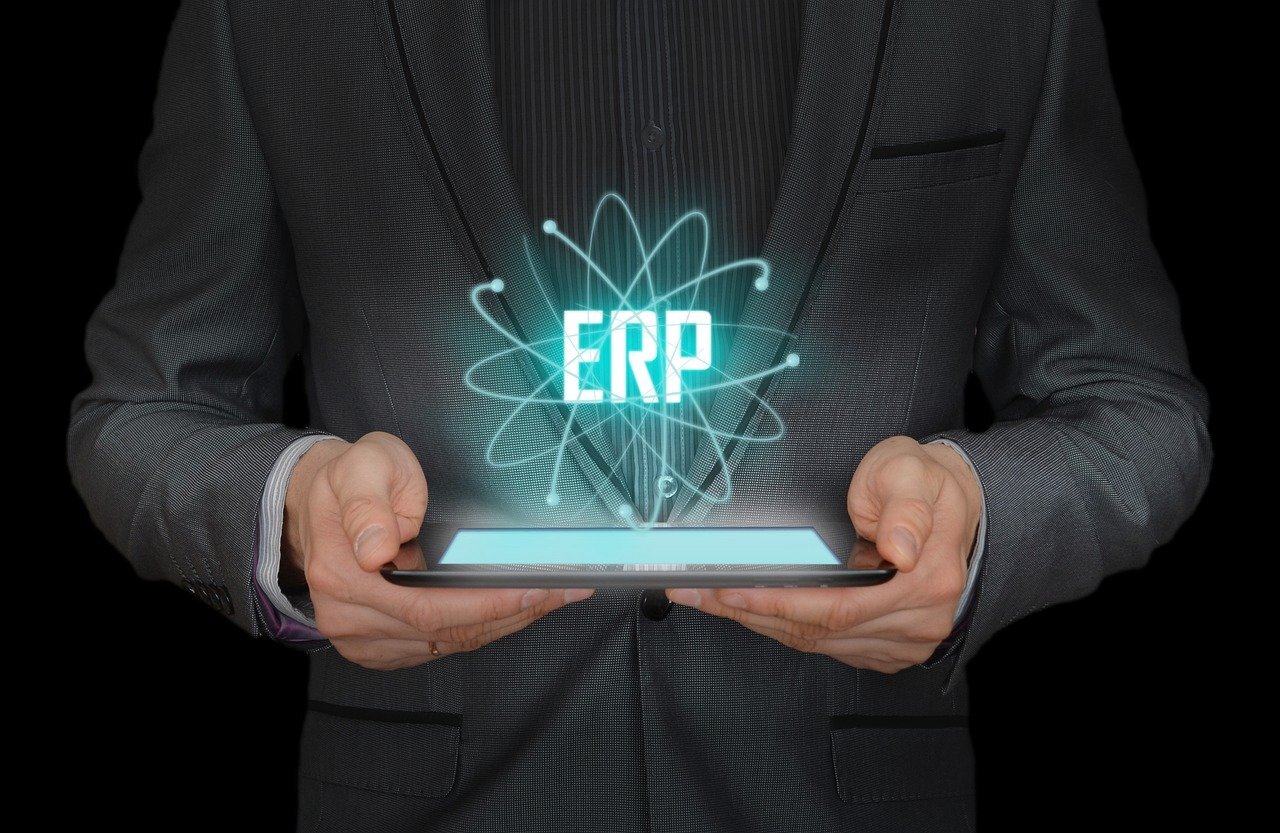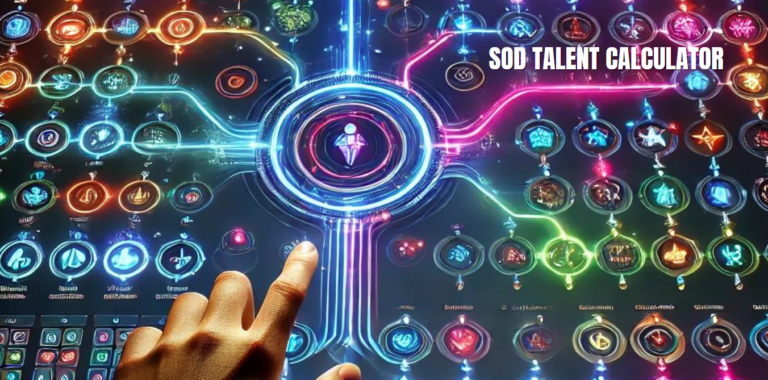A Comprehensive Guide to “https://noticviralweb.blogspot.com/2024/04/crm.html”
Introduction
In today’s rapidly evolving digital landscape, businesses need robust systems to manage customer relationships, streamline operations, and gain competitive advantages. This is where Enterprise Resource Planning (ERP) and Customer Relationship Management (CRM) systems become invaluable.
One notable source that has gained traction recently is “https://noticviralweb.blogspot.com/2024/04/crm.html,” a blog post that discusses CRM systems in-depth. In this article, we will provide a comprehensive and informative analysis of “https://noticviralweb.blogspot.com/2024/04/crm.html” and delve into the broader implications of CRM in business.
We will explore what makes CRM systems so crucial, how they differ from ERP solutions, the best practices for implementing CRM, and a host of other topics related to customer management. We will also ensure that this content is optimized to rank highly on search engines for the keyword “https://noticviralweb.blogspot.com/2024/04/crm.html,” making it a go-to resource for readers in the USA who seek to understand more about CRM systems.

ALSO REDA: Drink Conversationswithbianca: A Complete Guide to Mindful Living and Parenting
1. Understanding CRM Systems: An Overview
1.1 What is a CRM System?
A Customer Relationship Management (CRM) system is a technology solution that enables organizations to manage interactions with potential and existing customers. CRM systems help companies automate processes, track customer interactions, and optimize sales and marketing efforts. The ultimate goal of a CRM system is to enhance customer satisfaction, boost retention, and increase overall profitability.
1.2 Why is CRM Important for Modern Businesses?
In today’s competitive market, understanding and managing customer relationships is essential for growth. CRM systems allow businesses to:
- Centralize Customer Data: Store all customer information in one place, making it accessible to different departments.
- Improve Customer Service: Access to detailed customer profiles enables better service and personalized interactions.
- Optimize Sales Processes: CRM systems provide tools for tracking sales activities, managing leads, and closing deals efficiently.
- Boost Marketing Effectiveness: With data on customer behavior and preferences, marketing campaigns can be more targeted and effective.
1.3 Key Features of CRM Systems
Most CRM systems come with a suite of features designed to streamline business processes:
- Contact Management: Store and organize customer information such as names, addresses, and communication history.
- Sales Management: Track leads, manage opportunities, and forecast sales performance.
- Marketing Automation: Automate email campaigns, track customer engagement, and analyze marketing performance.
- Customer Support: Manage support tickets, track service requests, and monitor response times.
- Reporting and Analytics: Generate reports to gain insights into customer behavior and business performance.
2. ERP vs. CRM: What’s the Difference?
2.1 Defining ERP Systems
Enterprise Resource Planning (ERP) systems are comprehensive software solutions designed to integrate various business functions such as finance, human resources, supply chain management, and more. ERP systems provide a holistic view of the organization and help in streamlining operations across different departments.
2.2 The Relationship Between ERP and CRM
While CRM focuses on managing customer relationships, ERP encompasses a broader range of business processes. In many cases, CRM and ERP systems are integrated to provide a seamless flow of information between front-end customer interactions and back-end operations.
2.3 Choosing Between ERP and CRM
Businesses must evaluate their specific needs before choosing between an ERP or CRM solution. For companies looking to improve customer interactions and sales processes, a CRM system is the ideal choice. On the other hand, for organizations seeking to streamline internal operations, an ERP system may be more appropriate.

ALSO REDA: Drink Conversationswithbianca: A Complete Guide to Mindful Living and Parenting
3. The Evolution of CRM Systems
3.1 Early CRM Solutions
The concept of CRM originated in the 1980s as a way for companies to manage customer information and enhance service delivery. Early CRM systems were basic, primarily serving as electronic contact lists.
3.2 Modern CRM Systems
Today’s CRM systems are much more sophisticated, leveraging technologies such as artificial intelligence (AI), machine learning, and cloud computing. These advancements have transformed CRM systems into powerful tools for data analysis, customer segmentation, and predictive modeling.
3.3 The Rise of Cloud-Based CRM
Cloud-based CRM solutions have become the preferred choice for many organizations due to their flexibility, scalability, and cost-effectiveness. Companies no longer need to invest heavily in hardware and infrastructure, as cloud CRM systems can be accessed from any device with an internet connection.
4. Benefits of Implementing a CRM System
4.1 Enhanced Customer Experience
CRM systems provide a 360-degree view of the customer, enabling personalized interactions that lead to higher satisfaction levels.
4.2 Increased Sales Efficiency
With automated lead tracking and sales management tools, CRM systems help sales teams close deals faster and with greater accuracy.
4.3 Improved Collaboration
CRM systems facilitate communication between sales, marketing, and support teams by providing a centralized database of customer information.
4.4 Data-Driven Decision Making
Advanced reporting and analytics capabilities allow businesses to make informed decisions based on real-time data.

5. Best Practices for Implementing CRM Systems
5.1 Define Clear Objectives
Before implementing a CRM system, it’s essential to define clear goals and objectives. Determine what you want to achieve with the CRM, whether it’s improved customer service, increased sales, or better marketing efficiency.
5.2 Involve Key Stakeholders
Involving stakeholders from different departments ensures that the CRM system meets the needs of all users. Conduct workshops and gather feedback to tailor the system to specific requirements.
5.3 Choose the Right CRM Solution
There are many CRM solutions on the market, each with its strengths and weaknesses. Evaluate options based on factors such as scalability, integration capabilities, and ease of use.
5.4 Provide Training and Support
Training is crucial to ensure that all users can leverage the CRM system effectively. Offer ongoing support and resources to help employees master the new system.
5.5 Monitor and Optimize
Regularly monitor the performance of the CRM system and make adjustments as necessary. Collect feedback from users and continuously optimize processes to achieve the best results.
ALSO REDA: Drink Conversationswithbianca: A Complete Guide to Mindful Living and Parenting
6. Challenges of CRM Implementation
6.1 Data Integration Issues
Integrating existing customer data into a new CRM system can be challenging, especially if the data is stored in different formats or locations.
6.2 User Adoption
Resistance to change is a common barrier when implementing new technology. It’s important to communicate the benefits of the CRM system and provide adequate training to encourage user adoption.
6.3 Customization Complexity
Customizing the CRM system to meet specific business needs can be complex and time-consuming. It’s essential to plan for these challenges and allocate the necessary resources.
7. Choosing the Best CRM Solution
7.1 Top CRM Solutions in 2024
Several CRM solutions stand out in 2024, including:
- Salesforce CRM: Known for its robust features and extensive customization options.
- HubSpot CRM: A popular choice for small to medium-sized businesses due to its user-friendly interface.
- Zoho CRM: Offers a comprehensive suite of tools at an affordable price.
- Microsoft Dynamics 365: Ideal for businesses already using Microsoft products.
- Oracle CX: Best suited for large enterprises with complex requirements.
7.2 Factors to Consider When Choosing a CRM
When selecting a CRM solution, consider factors such as:
- Scalability: Ensure that the CRM can grow with your business.
- Integration Capabilities: Check whether the CRM can integrate with your existing software solutions.
- Cost: Evaluate the total cost of ownership, including licensing fees, implementation costs, and maintenance.
- User Experience: Choose a CRM with a user-friendly interface to encourage adoption.
- Support and Training: Consider the level of support and training available from the vendor.
8. FAQs about https://noticviralweb.blogspot.com/2024/04/crm.html
8.1 What information is covered in the blog post https://noticviralweb.blogspot.com/2024/04/crm.html?
The blog post discusses the importance of CRM systems in modern business operations, comparing them to ERP solutions, and offering insights into selecting and implementing CRM systems.
8.2 How can I access the blog post on https://noticviralweb.blogspot.com/2024/04/crm.html?
You can access the blog post by visiting the URL: https://noticviralweb.blogspot.com/2024/04/crm.html. The post provides a detailed overview of CRM systems and their benefits for businesses.
8.3 Is the content on https://noticviralweb.blogspot.com/2024/04/crm.html reliable?
Yes, the content on https://noticviralweb.blogspot.com/2024/04/crm.html is well-researched and provides valuable information for businesses looking to implement CRM systems.
8.4 What are the best practices for implementing CRM systems mentioned in https://noticviralweb.blogspot.com/2024/04/crm.html?
The blog post highlights the importance of defining objectives, involving stakeholders, choosing the right solution, providing training, and monitoring performance as key best practices for CRM implementation.
8.5 How does CRM differ from ERP according to https://noticviralweb.blogspot.com/2024/04/crm.html?
The post explains that while CRM focuses on managing customer relationships, ERP is a broader solution that integrates various business functions such as finance, HR, and supply chain management.
ALSO REDA: Drink Conversationswithbianca: A Complete Guide to Mindful Living and Parenting
Conclusion
In conclusion, “https://noticviralweb.blogspot.com/2024/04/crm.html” serves as an excellent resource for understanding CRM systems and their significance in modern business.
By providing detailed information and best practices, the blog post helps businesses make informed decisions about implementing CRM solutions. This comprehensive article has expanded upon the original content, offering additional insights and analysis to provide even greater value to readers.
ALSO REDA: Drink Conversationswithbianca: A Complete Guide to Mindful Living and Parenting







